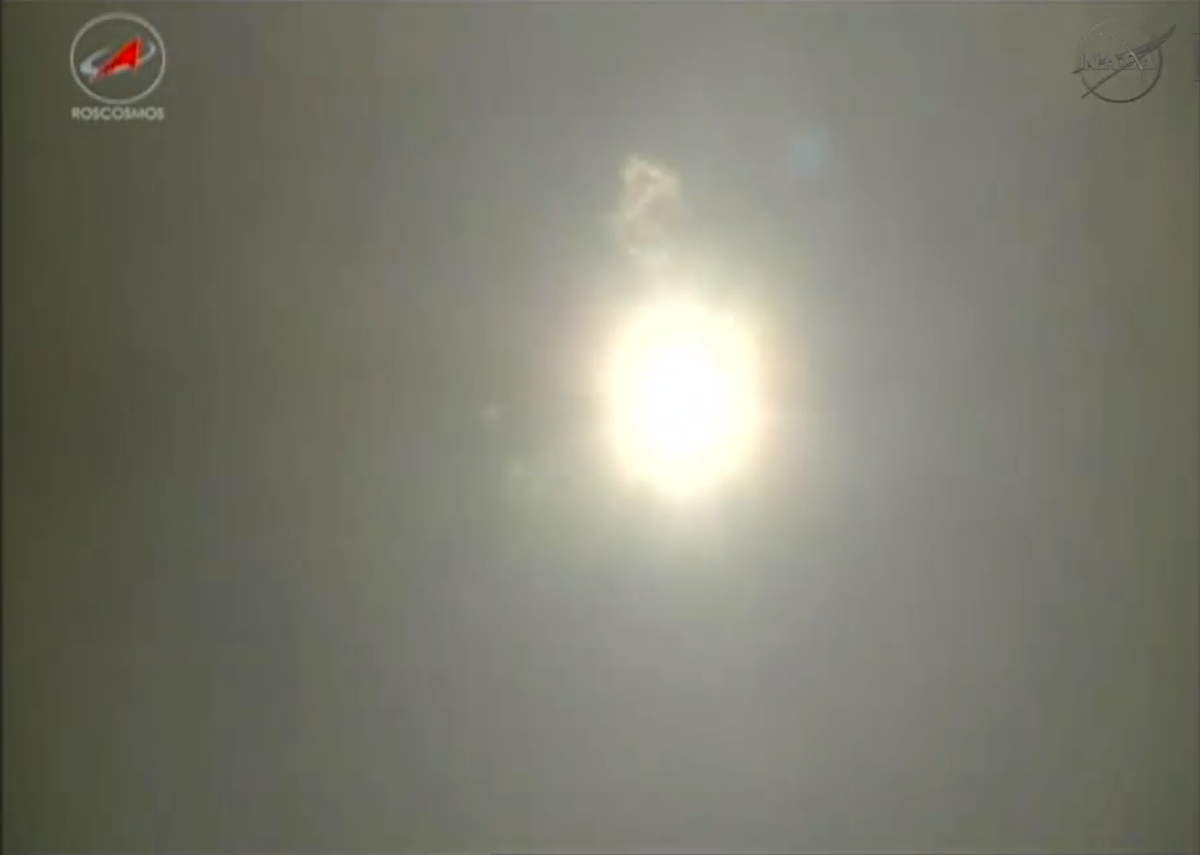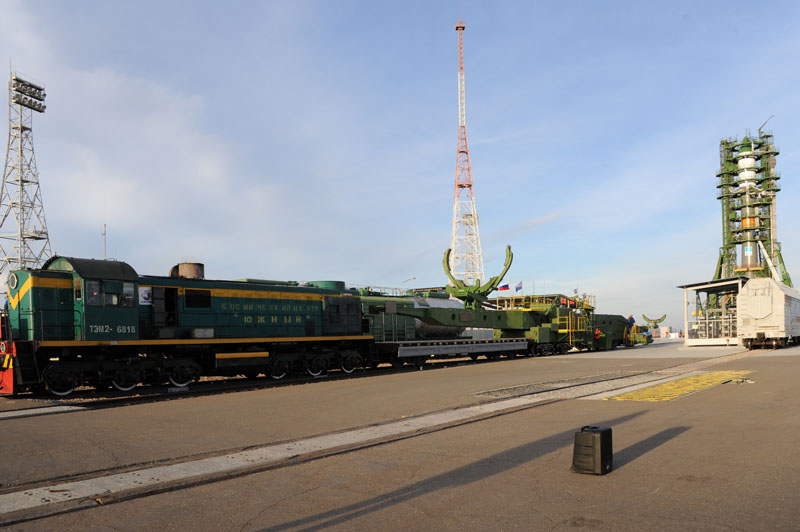Russia Launches Robotic Cargo Ship to Space Station

An unmanned cargo-carrying spacecraft launched on its way toward the International Space Station today (Nov. 25) for a post-Thanksgiving Day docking with the orbiting lab.
The unmanned Russian Progress 53 ship launched from Baikonur Cosmodrome in Kazakhstan at 3:53 p.m. EST (2053 GMT) loaded up with tons of food, fuel and other supplies — including some holiday goodies for the space station's Expedition 38 crew. The International Space Station passed directly over the cosmodrome four minutes before the Progress launched to space. The vessel is scheduled to dock with the orbiting outpost on Friday (Nov. 29).
Progress vehicles usually take just one or two days to arrive at the station. But this trip will take longer because the spacecraft is carrying a new docking system for future Russian spacecraft; the Progress 53 will conduct a flyby of the orbiting outpost to test the system before making its final approach, NASA officials said. [See photos of Progress 53's launch to the International Space Station]
"Once the Progress reaches its preliminary orbit nine minutes after launch, it will conduct a series of automated engine burns to put it on track to fly within one mile of the station on Wednesday," NASA officials wrote in a release.
"That close encounter 'flyby' Wednesday at 4:53 p.m. will test lighter, more-efficient Kurs automated rendezvous system hardware for upgraded Soyuz and Progress vehicles," they added. "After it finishes its 'flyby,' the Progress will loop above and behind the station, returning Friday for a docking to the aft port of the Zvezda service module at 5:28 p.m."
Progress spacecraft are disposable 3-module vehicles like Russia's Soyuz capsules. Instead of a crew module, as in the Soyuz, Progress vessels carry a module filled with fuel used for space station maneuvers.
Other robotic spacecraft tote supplies up to the space station as well. NASA has deals with two private spaceflight firms, SpaceX and Orbital Sciences, to fly resupply missions to the station using their spacecraft and rockets. Europe's Automated Transfer Vehicles and Japan's H-II Transfer Vehicles also visit the space station to deliver goods to the crew.
Breaking space news, the latest updates on rocket launches, skywatching events and more!
Six crewmembers currently live and work aboard the International Space Station. Russian cosmonauts Mikhail Tyurin, Sergey Ryazanskiy and Oleg Kotov, NASA astronauts Rick Mastracchio and Mike Hopkins and Japanese space agency astronaut Kiochi Wakata make up the crew.
The Progress spacecraft is delivering 1,763 pounds (800 kilograms) of propellant, 3,119 pounds (1,415 kg) of spare parts and experiment hardware, 48 pounds (22 kg) of oxygen, 57 pounds (26 kg) of air and 925 pounds (419 kg) of water to the International Space Station, NASA officials said.
Follow Miriam Kramer @mirikramer and Google+. Follow us @Spacedotcom, Facebook and Google+. Original article on SPACE.com.

Miriam Kramer joined Space.com as a Staff Writer in December 2012. Since then, she has floated in weightlessness on a zero-gravity flight, felt the pull of 4-Gs in a trainer aircraft and watched rockets soar into space from Florida and Virginia. She also served as Space.com's lead space entertainment reporter, and enjoys all aspects of space news, astronomy and commercial spaceflight. Miriam has also presented space stories during live interviews with Fox News and other TV and radio outlets. She originally hails from Knoxville, Tennessee where she and her family would take trips to dark spots on the outskirts of town to watch meteor showers every year. She loves to travel and one day hopes to see the northern lights in person. Miriam is currently a space reporter with Axios, writing the Axios Space newsletter. You can follow Miriam on Twitter.

